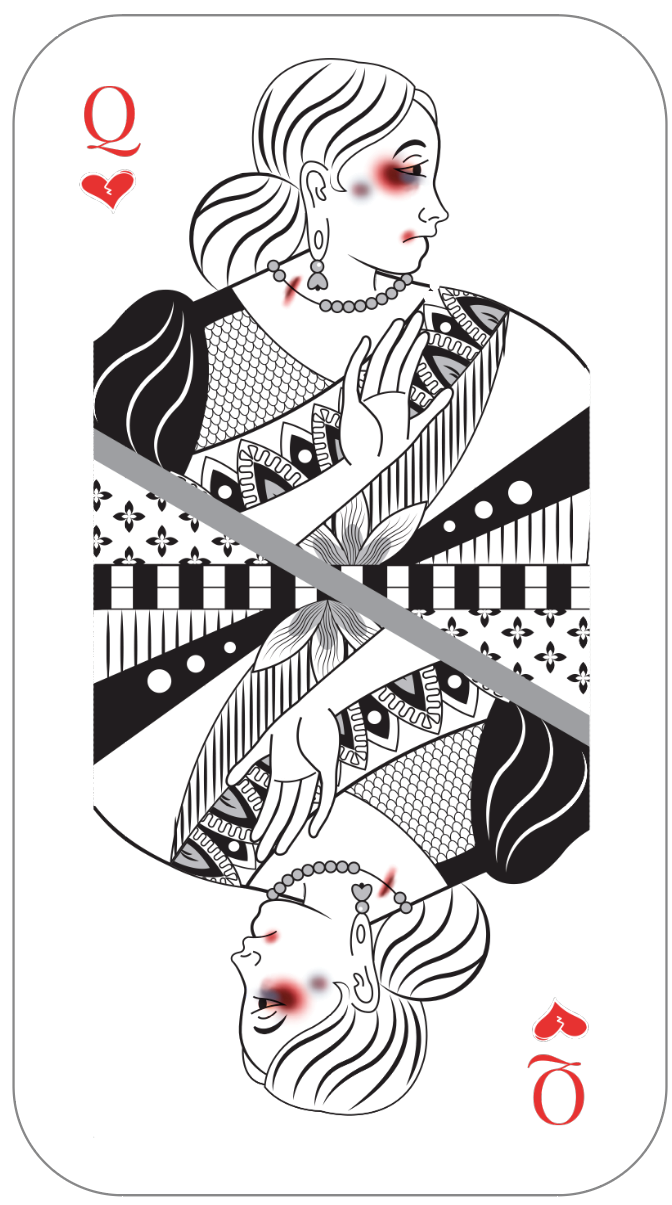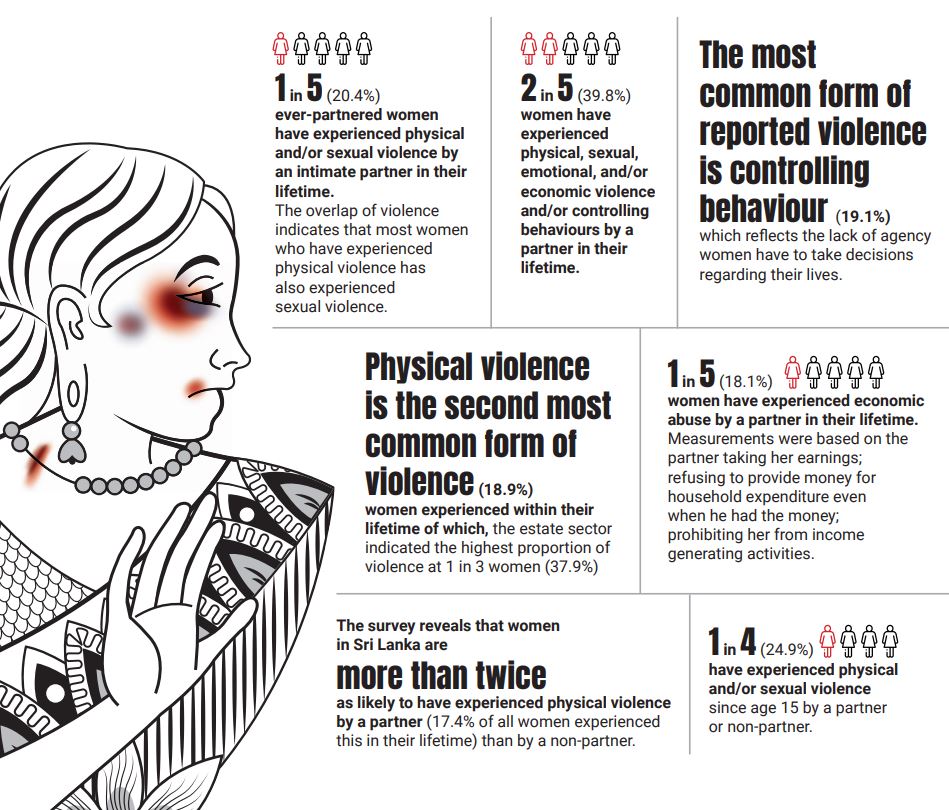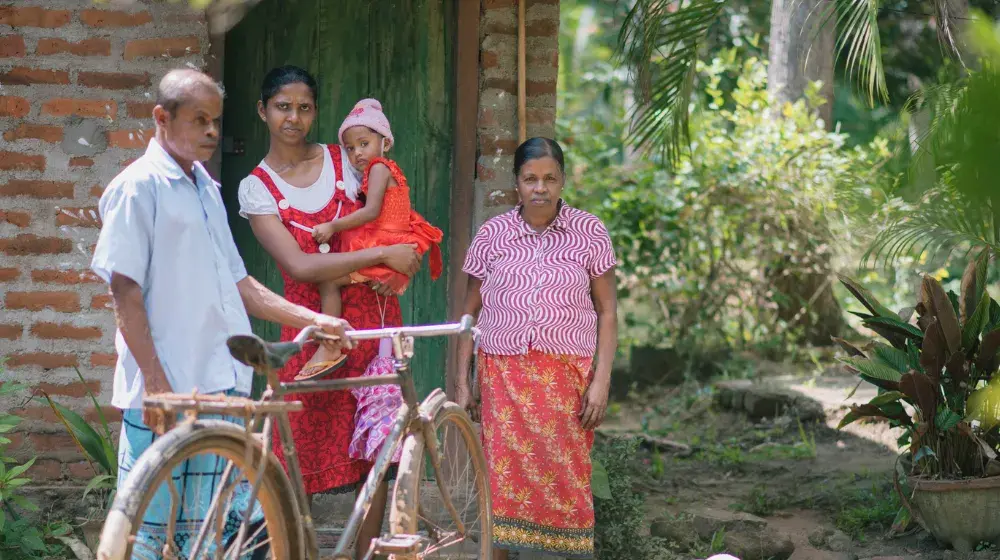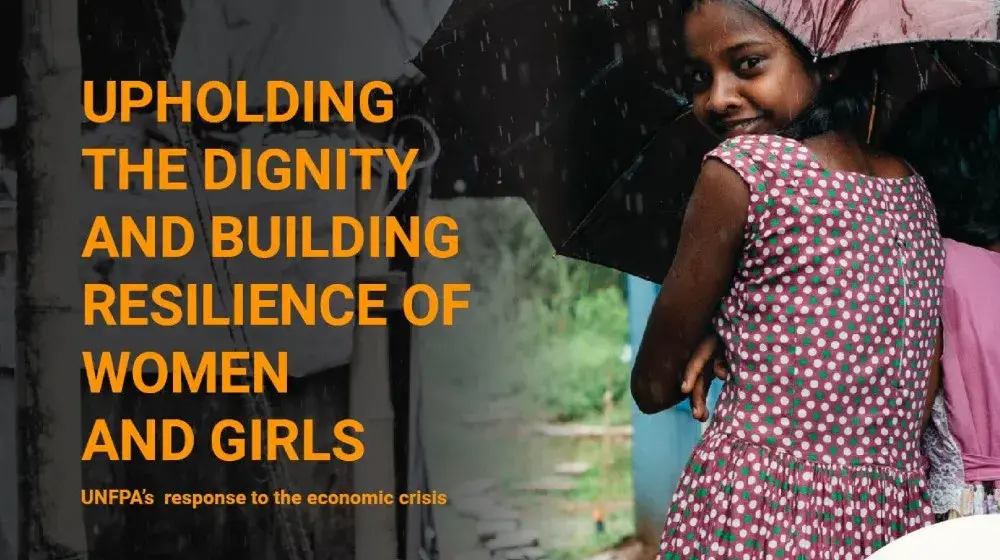Don't play the hand you're dealt

Don't play the hand you're dealt
The Women's Wellbeing Survey (WWS, 2019), Sri Lanka's first national survey on women and girls found that 1 in 5 (20.4%) women in Sri Lanka have experienced physical and/or sexual violence by an intimate partner in their lifetime. 1 in 4 (24.9%) women have experienced physical and/or sexual violence by a partner or non-partner.
Yet, close to half (49.3%) of the women who experienced sexual violence by a partner did not seek formal help anywhere.
Get the facts on the wellbeing of women and girls in Sri Lanka:

Empowering communities to prevent Violence Against Women and Girls
The COVID-19 pandemic is straining public health systems, triggering unprecedented measures by Governments around the world. Stress, limited mobility and livelihood disruptions increase women’s and girls’ vulnerability to gender-based violence and exploitation. Further lockdowns and travel restrictions have also seen a reinforcement of ‘domestic gender norms’ which if left unchallenged, gets reinforced and scaled up from home to school to the community.
UNFPA Sri Lanka, with a grant in aid of AUD 1,000,000 from the Government of Australia (DFAT), is implementing a 30-month project to reduce the incidents of violence against women and girls at the National level in the Northern Province with a focus on the Mannar District.
As a joint programme, UNFPA, UNICEF and UN Women, focus on 3 outputs which are:
Output 1: Families, community members have the knowledge and skills to practice and promote gender-equitable non-violent relationships and prevent violence against women, girls and children, and response efforts strengthened.
Output 2: Girls and boys have the knowledge and improved life and social skills to practice and promote gender-equitable non-violent relationships.
Output 3: Women in Mannar are empowered to exercise their choices and participate in employment opportunities that promote their financial independence, and have access to quality services.
UNFPA’s focus however remains with Output 1 to,
1.1. Conduct a study as part of national-level assessment to identify the SGBV related impact of the pandemic COVID-19 specifically on women and girls of reproductive age. The assessment will aim to further strengthen the response and prevention of SGBV at the national level to ensure services for victims and survivors are integrated and enhanced and reflected in policies at the national and sub-national levels.
1.2. Support shelters to remain accessible during the course of the pandemic
1.3. Develop a formative research to understand the drivers of VAW in the Mannar District including WEE.
1.4. Develop training modules based on the formative research targeted for parents and communities in Mannar District. The modules will be based on changing prevalent beliefs that reinforce harmful gender norms within families and communities.
Joint Programme for Resilience
During conflicts, natural disasters and public health emergencies, sexual and reproductive health needs are often overlooked – with staggering consequences. When an emergency strikes, UNFPA prioritizes its work on reaching the most vulnerable, particularly pregnant and lactating women and girls of reproductive age, by providing them with the necessary items to fulfill their basic needs in the midst of the crisis.
UNFPA Sri Lanka, with a grant in aid of USD 125,000 from the UN JPO is implementing a 3-year project to ensure National and sub-national authorities involved in disaster risk management are able to promote resilience effectively respond to disasters.
As a joint programme, UNFPA, UNICEF and WFP, focus on 3 objectives which are:
Objective 1: To strengthen the capacity of government authorities, women, children and vulnerable communities on emergency preparedness and response to promote community resilience and meaningful engagement in disaster preparedness and response.
Objective 2: To improve the use of risk-informed programme planning and budgeting processes to strengthen community and sectoral resilience against climate-related hazards and increased climate variability
Objective 3: To ensure effective humanitarian leadership along the continuum of Response to Resilience
UNFPA’s focus however remains with Objective 1, Output 1.1.2,
Government institutions and systems at the national and sub-national level are strengthened to deliver universal Sexual and Reproductive Health Rights (SRHR) and integrated gender-based violence prevention and response systems.
Provide technical support and equipment to engage in remote referral and counselling and mapping of relevant SGBV prevention and response actors/ services providers and developing standard operating procedures for addressing GBV in Emergency affected areas including referral and reporting mechanisms, information sharing, coordination and monitoring/evaluation.
Conduct capacity building programmes at all levels and across all sectors of interventions to effectively address SRHR and SGBV during emergencies.
Provide technical support to review and integrate SGBV and SRHR in disaster risk reduction plans and systems.





